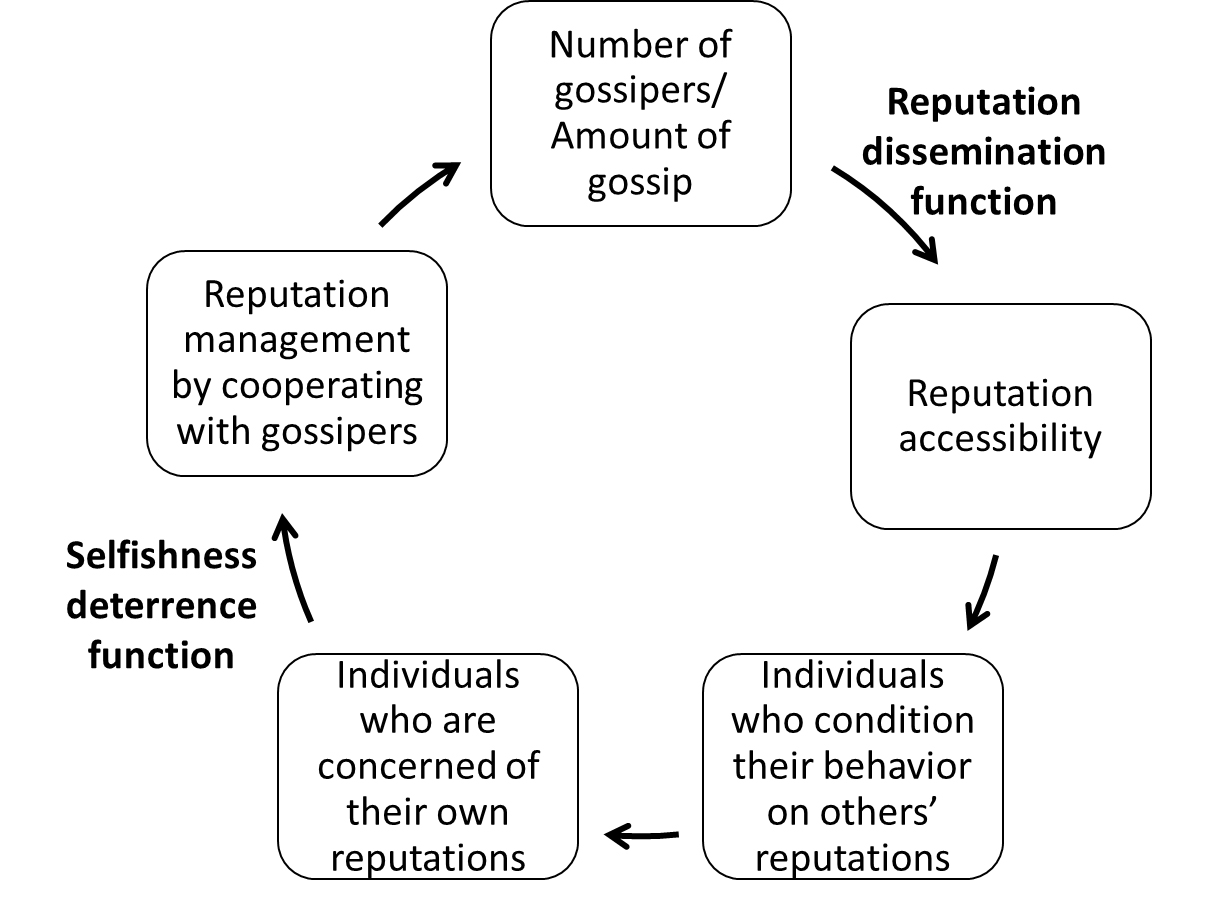Good Gossip
⏲ 3-minute read | last updated 2 months ago

Humans are social creatures, and we receive a lot of information about the world when we gossip - it isn't (necessarily) a bad thing.
Evolution
Gossip is in our blood. Humans who shared information among social circles had an evolutionary advantage. They were able to find those among the group they could trust, and (more importantly) identify bad actors. At the most basic level, gossip was a tool for survival. It answered important questions that helped the group function:
- Who wields the most power/influence in the group? (alliances to make)
- Who has limited resources? (alliances to avoid)
- Whose sleeping with whom? (familiarization with other alliances)
- Who might stab you in the back? (to be cautious of during tough times)
This behavior is called prosocial gossip and protects the group from untrustworthy people. Those uninterested in it were disadvantaged (less likely to mate, reproduce, and form protective alliances). Ultimately, this led to more cooperation in the group.
Encouragement for Cooperation
Gossip serves as a “selfishness deterrent” in a reinforcing, virtuous cycle:
- Individuals tend to condition their behavior based on others’ reputations.
- The availability of gossip (including receiving gossip) makes those reputations widely accessible.
- This becomes a deterrent to the selfish among the group to act more cooperatively.

And most of the time, the content is neutral anyway- that is; not inherently positive, or negative. Humans are social creatures, and gossip is a primary mechanism for learning about our world.
Gossip Today
It’s through this evolutionary context and benefit to cooperation that we can identify a standard for “good gossip” in the modern age. It still serves the same purpose: information sharing. What makes it good or bad isn’t the content, but how we use the information. Ultimately, a good gossiper is someone who people trust with information and someone who responsibly uses that information for the benefit of the group. A bad gossiper shares information to get ahead themselves or shares it recklessly.
Think:
- Exposing wrongdoing/whistleblowing = ✅
- Spreading misinformation/bullying = ❌
My Golden Rule(s)
I have two rules that (generally) serve me well:
- You can’t be upset with someone unless they know you’re upset with them.
- You can’t say something behind someone’s back unless you’ve said it to their face.
This clears up a lot of issues and reduces the entire volume of gossip-able content. With few exceptions, it’s prudent and productive to first speak directly to anyone you have a problem with. By doing so, you're fostering open communication and trust in your social group (gossip content is often an artifact left behind by miscommunication in the first place). If we accept that a good gossiper is someone you trust, and who is disseminating and using information responsibly; this step could be considered your “due diligence”.
But otherwise: good, bad, or neutral - the virtuosity of gossip isn’t determined by content; only by intention. Warn others about bad actors in your group. Sing the praises of those who deserve it. Enjoy the water cooler talk. In doing so, you'll harness the power of gossip to help yourself and create a stronger, more cohesive community.
--